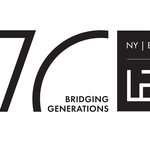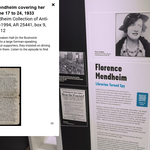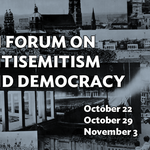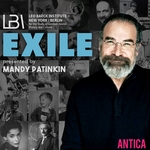Michael A. Meyer on the History of LBI

- Author
- David Brown
- Date
- Mon, Nov 9, 2015
As the Leo Baeck Institute celebrated its 60th anniversary in 2015, LBI president Ronald B. Sobel and board member Joan C. Lessing presented the Moses Mendelssohn Award to historian Michael A. Meyer for his scholarly achievements. On this occasion, the Adolph S. Ochs Professor of Jewish History Emeritus at Hebrew Union College also delivered the 58th Leo Baeck Memorial Lecture, providing an intriguing review of the Institute’s six-decade efforts to collect and communicate the history of German-speaking Jewry.
In his lecture, Meyer illustrated how the LBI’s growing collection of 3.5 million documents, 80,000 books, and 8,000 artifacts and works of art has a distinct history of its own. The seeds were planted in the home of Martin Buber in Jerusalem. The group of émigré intellectuals who gathered there in 1955 shared a vision: The cultural and intellectual legacy of centuries of German-speaking Jewry ought to have a place where it could be preserved and revisited. Two criteria figured prominently for the founders of the LBI: Only ten years after the end of the Holocaust, they conceived of a rediscovery and interpretation of German-speaking Jewry that was not framed by its destruction. At the same time, the LBI “was not to be a mere purveyor of nostalgia, simply recounting the triumphs and achievements of former generations. Instead, it was to be devoted to impartial scholarship, letting the chips fall where they may.” This is the ethos still alive at the LBI today.
The engagement of the LBI with scholars has produced a breadth of approaches over the years, ranging from what Meyer terms Spitzengeschichte, the history of luminaries and high achievers who emerged from among German Jews, to the history of German antisemitism, to Jewish Geistesgeschichte (intellectual history), and Religionsgeschichte (religious history), and Alltagsgeschichte (history of everyday life).
In 1996, the concerted efforts of ten authors from Israel, Germany, the United Kingdom and the United States culminated in what has been a long-term desideratum of the LBI. Under the editing guidance of Michael Meyer and Michael Brenner, LBI published German Jewish History in Modern Times, a comprehensive history of German-speaking Jewry spanning four volumes. Marking the beginning of German Jewry in the Middle Ages, the authors and editors saw the Holocaust as the end of the narrative. According to Meyer, “The postwar German-Jewish communities in the Federal Republic in the West and in the Socialist German Democratic Republic in the East were then regarded as a separate phenomenon, too far removed from prewar German-Jewish traditions to be a part of the same narrative.”
That has changed over the last decade, said Meyer, during which LBI has engaged with the history of Jewish life in Germany from 1945 to the present and, responding to the growing body of research being produced in Germany itself, opened an archive and office in Berlin. LBI provides access to parts of its archive at the Jewish Museum Berlin, and it engages in varied outreach events across Germany.
Referencing the Czech-American literary scholar Erich Kahler, who had addressed the question of the relationship between German Jews and non-Jewish Germans, Meyer pointed out that understanding the two as distinct entities misses the dynamic feature of each as well as that of their relationship. Adequately accounting for the history of this relationship, which Meyer terms a Beziehungsgeschichte, is one of the challenges the LBI has been dealing with until today.
With this survey of German-Jewish life, Michael Meyer became the only person to deliver the Leo Baeck Memorial Lecture twice. This fact reflects not only the close scholarly bond between the Institute and Meyer’s career, but also his exceptional qualifications. The historian Michael Brenner, who succeeded Michael Meyer as international president of LBI, lauded him as an “internationally renowned scholar, educator of generations of rabbis, and mentor to many.”
Latest News





